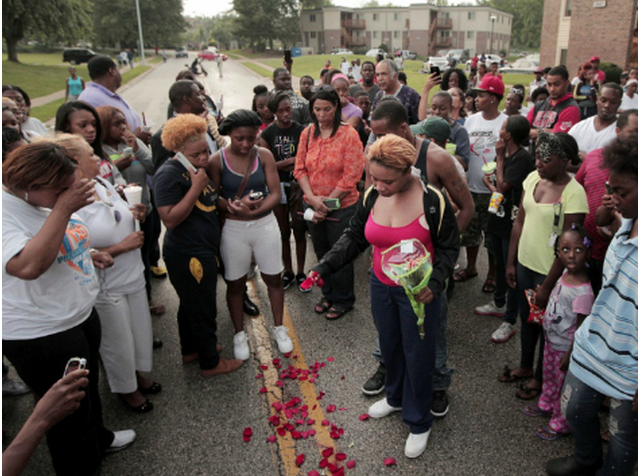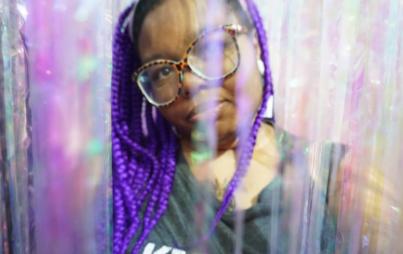
Courtesy of Breitbart.com
As the days roll by, more and more eyes are fixating on Ferguson, Missouri. The killing of unarmed teenager Michael Brown has catalyzed local protests and increasingly militarized—and unnerving responses—from police officers, both of which continue to grow. And while we still don’t know the exact details in the murder, here is what is clear: Michael Brown, another black teenager, in a long line of black teenagers, is dead at the hands of police officers.
And it’s struck a nationwide nerve.
What we’re seeing is a country—our own little U.S. of A—grappling with a lengthy and sordid history of racism, questions of civil liberties, and myriad lives senselessly taken. There are, of course, no clear answers to these questions and issues; Ferguson cannot be neatly tied up with a bow. But while we continue to take it all in and attempt to reconcile everything that's transpired . . .
1. History of Racial Profiling
Here’s something that can’t be overstated: Michael Brown’s death—and the dehumanizing way the media choose to portray him (as brought to painful elucidation by the #IfTheyGunnedMeDown campaign)—are not isolated occurrences.
Racial profiling and arrests? Totally a thing. Sticking with just Ferguson in 2013 (while attempting to also acknowledge the broadness of this huge issue) here are some sobering stats from the suburb that is two-thirds black:
- 92% of searches and 86% of car stops involved black people
- 483 black people were arrested vs. 36 white people
- 1 in 3 white people were carrying contraband (like weapons or drugs) vs. 1 in 5 black people
Of Ferguson’s 53 police officers, just 3 are black.
2. First Amendment Violations
Protesters are being arrested for exercising their right to peaceful protest. And media has been threatened and squelched. Journalists, like Washington Post reporter Wesley Lowry, who was sitting peacefully on his phone in McDonald’s outside of the main action, have been arrested. Some have even been tear-gased.
Further, officials have so far failed to name the officer responsible for Mike Brown’s death, despite their promise they would name him by Tuesday. The ACLU has said it will sue if the police department continues to keep the name quiet, insistent they are breaking the law by keeping it a secret.
3. Militarization of Police
Why is everyone so fixated on Ferguson? Um, this is what it looked like there last night:

Then there was this:

With police officers dressed like this:

Protect and serve, eh?
4. Comparisons with Abroad
Given the startling images of SWAT teams and cops decked out in riot gear, a number of commentators have drawn comparisons with protests and conflicts areas abroad—Gaza, Iraq, and Egypt. Cries of Ferguson being akin to a “war zone” are omnipotent.
We get why, of course, but let’s not lose sight of a few things:
- Not to sanction the police's actions, but a war zone contains two sides who are fighting each other—this is not Ferguson.
- To compare Ferguson with the protests, say, in Egypt, given how many died for their efforts, is both inaccurate and terribly disrespectful—on this day last year alone, an estimated 1,000 Egyptian demonstrators were killed by security forces at the Rab’a al-Adawiya sit-in.
- This all said, tweets are coming in from Turkey and Gaza to teach Americans the best ways to deal with tear gas—and we should definitely let this advice resonate.
5. Online Activism and Coverage
Activists took to twitter in the hours after Michael Brown’s death—as a result, there are nationwide events planned under the umbrella of the National Moment of Silence 2014 (#NMOS14) scheduled for later today (so, yes, organizers accomplished a lot really fast). While it’s important to note that people are organizing both online and off, part of what has made Ferguson resonate so much is the way in which social media have connected users. Tweets and vines from journalists are bouncing around like pinballs. Reddit is keeping a live stream of what is happening in addition to the hacktivist group Anonymous, which is using social media both to obtain and spread information. (Anonymous is—of course—also making threats about releasing names of the officers it believes are involved, despite one of its accounts being blocked.)
The sum total of all the social media enables us to get a little closer to the suburb at the center of this racial morass.






